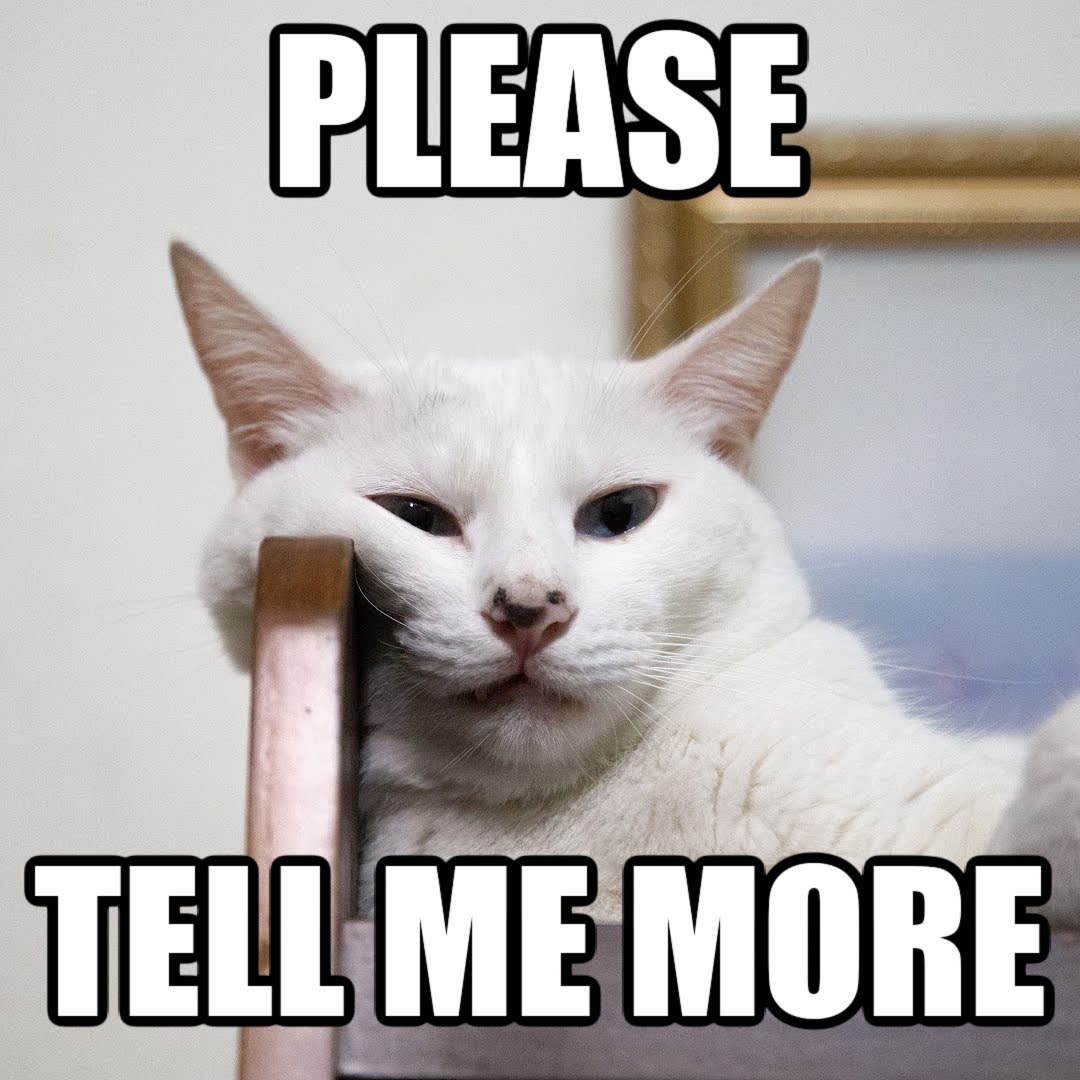You know how sometimes a picture, a phrase, or just a simple idea suddenly seems to be everywhere online? It pops up in chats, on social feeds, and everyone seems to get the joke. This quick spread of ideas, often with a funny twist, is something we all see a lot these days, so it's a big part of how people connect and share laughs online.
It’s a curious thing, really, how these bits of internet culture get around. They start small, maybe with one person making something, and then, pretty soon, they’re showing up in all sorts of places, you know? It's like they have a life of their own, traveling from one screen to another, bringing smiles or a shared nod of recognition to lots of folks.
We often talk about these popular internet bits, sometimes calling them "emojis with extra meaning" or "funny bits of text," but there’s a deeper idea behind them, too it's almost. It’s about how ideas spread, change, and become a part of our shared conversations, making the internet a more lively place for everyone.
Table of Contents
- What Do We Call These Ideas?
- How Do Shared Pictures Become So Popular?
- Who or What Becomes a Shared Joke?
- What About Helpful Tips That Spread Online?
- How Do Online Spaces Handle Originality?
- What Is This "Animal Park Culture"?
- How Do Words and Phrases Catch On?
- Where Do People Talk About These Things?
What Do We Call These Ideas?
When we talk about those widely shared internet bits, people often use different words to describe them. Some folks might say "expression packs," which are like those funny pictures you send in messages. Others might call them "short jokes" or "funny pieces of writing," that, you know, just get passed around. Then there's a word, "geng," which came from Japanese and is now used quite a bit here, but even that might not fully capture the whole idea, in a way.
It's a bit tricky to find just the right word, isn't it? People have tried "mi mi," "mo yin," or "mi mu," trying to get at what the original word means. But the feeling of something that spreads quickly, changes as it goes, and becomes a shared inside joke, seems to go beyond just one simple term. It’s more about a feeling, a moment of shared amusement, or a quick piece of information that just clicks with people, very much.
Finding the Right Words for Meme Viral Thoughts
The challenge of naming these quick-spreading ideas shows how rich and varied internet talk is. It’s like trying to catch smoke, you know? The way a picture or a phrase becomes a meme viral sensation is often about more than just its looks; it's about what it means to a group of people at a certain time. This makes finding a perfect single word quite hard, as a matter of fact.
How Do Shared Pictures Become So Popular?
Sometimes, a simple photograph can take on a life of its own, becoming something everyone sees and talks about. Think about that picture of the seagull eating french fries. It just caught on, spreading like wildfire across the internet. The initial moment might have passed, but the image itself kept going, almost like it had a mind of its own, you know?
The story of that gull didn't stop with just the picture. On March 22, 2021, the person who took the photo, Hannah, put it on her Instagram again. After that, she got a message from a private account, which was a bit unusual. This shows how something that seems small can turn into a big deal, drawing attention and curious questions, very much.
The Story of a Meme Viral Gull
The way that gull picture became a meme viral hit is a good example of how images move through online spaces. It wasn't just a funny photo; it became a symbol, something people could share to express a feeling or a situation. This kind of spread often happens quite suddenly, with a lot of people picking it up and passing it on, sometimes with their own little changes, too it's almost.
Who or What Becomes a Shared Joke?
It's interesting how certain people or ideas can become a kind of shared inside joke for a whole group of internet users. Take Sun Xiaochuan, for example. He once said something really clear about himself: he's a platform. If you get that, you understand why people poke fun at him or use his name in different ways, you know? People just use him as a kind of open space, much like a discussion board.
This idea of someone being a "platform" means he's become a common ground for people to share their own thoughts and humor, rather a bit. It's not about him as a person so much as it is about what he represents to a community. This makes him a starting point for all sorts of creative and sometimes silly online content, apparently.
Sun Xiaochuan- A Platform for Meme Viral Expression
The concept of Sun Xiaochuan as a collective platform for meme viral content is quite unique. It shows how internet communities can take a person or a concept and turn it into a canvas for shared jokes, stories, and even critiques. It’s a way for a group to express itself through a common reference point, basically.
What About Helpful Tips That Spread Online?
Sometimes, it's not a picture or a person, but a piece of advice that gets passed around quickly online. Have you ever heard about using WD-40 to get chewing gum out of carpet? Someone might tell you that, saying it works wonders. But then you might wonder, is it really as helpful as everyone says, you know?
This kind of shared wisdom, whether it's a cleaning tip or a life hack, can spread just like a funny picture. People hear it, try it, and then share their own experiences. This creates a kind of collective knowledge base, where ideas get tested and passed on, sometimes becoming quite famous in their own right, very.
The WD-40 Meme Viral Solution
The WD-40 tip for gum removal is a perfect example of a practical piece of information becoming a meme viral sensation in its own way. It’s a piece of folk wisdom that gets shared and re-shared, often with an element of wonder or disbelief attached to it. This shows that not all widely shared content is just for laughs; some of it aims to be helpful, too it's almost.
How Do Online Spaces Handle Originality?
Online platforms often have rules about what people can upload, especially when it comes to things that spread widely. For example, some video sites might flag certain types of content as against their rules. One big thing they look out for is directly uploading someone else's original work, you know?
Before, I mentioned that a certain video platform really cares about whether videos are original. That's because they really want people who create things to make and share their own videos. They aim to protect the creators on their site, which means they want new and unique stuff, not just copies, as a matter of fact.
Rules for Meme Viral Content
These rules for original content affect how meme viral material gets shared. While memes often involve remixing or using existing images, platforms still try to draw a line when it comes to outright copying someone else's full creation. It's a balance between letting creativity flow and protecting the people who put in the effort to make something new, basically.
What Is This "Animal Park Culture"?
Someone who first put together the "Hakimi" idea with "Dian Gun" was truly a clever person. After many years of growth on the internet, something called "animal park culture" has come about. This includes things like Dian Gun, Hakimi, Ding Dong Chicken, private sounds, and Pea Laughter Stories, among others. It’s become a huge, open space for all sorts of "rotten" things, in a way.
This "animal park culture" is a bit of a strange mix, isn't it? It's where all these seemingly unrelated or even a little bit silly internet bits come together to form a bigger, shared world. It's a place where things that might seem odd on their own make sense within the group that understands them, apparently.
The Strange World of Meme Viral Subcultures
The emergence of "animal park culture" shows how niche interests can grow into a significant meme viral subculture. It’s a testament to how online communities can find common ground in shared absurdities or seemingly random elements, building a complex internal world of humor and references, you know?
How Do Words and Phrases Catch On?
Just like pictures, certain phrases or bits of dialogue can become incredibly popular. When a particular TV show episode became famous, it sparked a widely shared internet bit, or what we call a "geng" in Chinese. Young people in Western countries started playing a game with the phrase "I'm not your friend, buddy," you know?
The game involved simply swapping out the last word, changing "buddy" to "guy," "pal," or "friend," and just repeating it over and over. This shows how words that are already quite similar can be used in a new, playful way to create something that spreads quickly. It’s a simple idea, but it caught on, very much.
The "Buddy" Loop- A Meme Viral Game
The "I'm not your friend, buddy" loop is a clear example of a verbal meme viral sensation. It illustrates how a simple, repeatable structure can become a fun, interactive game that people share and adapt. This kind of wordplay is a common way for phrases to gain popularity online, too it's almost.
Where Do People Talk About These Things?
Online platforms play a big part in how these ideas spread and how people talk about them. Zhihu, for example, is a place on the Chinese internet known for its good quality questions and answers, and where people who create content gather. It officially started in January 2011, with the main goal of helping people share knowledge, experiences, and thoughts, and find their own answers, you know?
Zhihu has built a name for itself because it encourages serious, expert, and friendly discussions. This kind of space is where people can ask "What is a meme?" or "How do you best translate it?" and get detailed answers. It’s where the community helps make sense of these quick-spreading ideas, providing a place for deeper thought, very much.
Zhihu- A Place for Meme Viral Discussion
Zhihu serves as a significant platform for discussing and documenting meme viral phenomena. Its focus on detailed questions and answers makes it a hub for people to explore the meaning, origins, and spread of these internet ideas, fostering a shared understanding among its users, basically.
This exploration has covered how simple ideas, pictures, and phrases can quickly become widely known online. We looked at the challenge of finding the right words to describe these spreading bits of culture, and how a picture of a gull eating fries became a shared moment. We also touched on the idea of a person becoming a collective canvas for internet jokes, and how even helpful tips can go around quickly. The discussion also included how online spaces manage content originality, the curious nature of internet subcultures like "animal park culture," and how simple word games can catch on. Finally, we saw how platforms like Zhihu provide a space for people to talk about and understand these quick-spreading ideas.


![Funny Memes - Funniest Memes of All time [New Memes] - Trends in USA](http://www.tricksbystg.org/wp-content/uploads/2018/04/funny-kids-hiding-meme-memes-k-4461.jpg)
